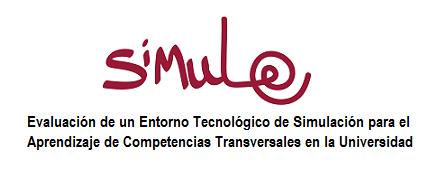Se presenta la comunicación "USING SIMULATION GAMES TO IMPROVE LEARNING SKILLS" en la mesa dedicada a "Educational/Serious Games and Software" donde se explica la propuesta didáctica realizada con los alumnos de la Universidad Rovira i Virgili para mejorar las competencias transversales utilizando juegos basados en simulaciones en un mundo virtual.
While educators teach their students about decision making in complex environments, managers have to deal with the complexity of large projects on a daily basis. To make better decisions it is assumed, that the latter would benefit from better understanding of complex phenomena, as do students as the professionals of the future.
The goal of this paper is to evaluate the relevance of the use of simulation games for learning skills at the University. The conjecture is that complex adaptive systems can be simulated by games, in which players are able to experience the system workings, and retrieve more insight in their complex behaviour as a result. In this case we refer to its demonstration in virtual environments in 3D space representing the reality and simulating learning environments. These tools are being used in the development of the project Simul@: " Evaluation of a Simulation Technological Environments for the Learning of Transversal Competences at University ” (ref. EDU2008-01479); Simul@ is a research project oriented to develop transversal competences of university students.
The main aim of this project is to prove the efficiency of the technological environments based on simulations in work-related environments in the learning of transversal competences at University (concretely self-management, and Teamwork) and it is for this reason that experimentation with learning spaces based on technological tools of simulation becomes essential.
We are using virtual world as experimental training environment. Virtual world based games are goal-oriented and take place within limitations of the rules of the game. The social aspect supports game play although there are “serious games” where the focus is on learning and collaboration. In addition to this, when the use of the virtual world is a new experience for the students, the virtual world constitutes a collaborative learning activity that contributes to socialisation between students.
The experimentation with these spaces and tools for simulation will allow students to improve competences and construct knowledge. The information generated in the process will contrast and account for their efficiency in the acquisition of transversal competences. It also seeks to explore the affordances of this kind of 3D virtual world and examine ways in which students practise their future work in a simulated environment.
Based on this study, we will present indications of learning and conclusions on how simulation games can provide insights in transversal competences and be used to educate both students and professionals.
Keywords: Virtual World, generic skills, skills assessment, teamwork and self-management skills.





No hay comentarios:
Publicar un comentario